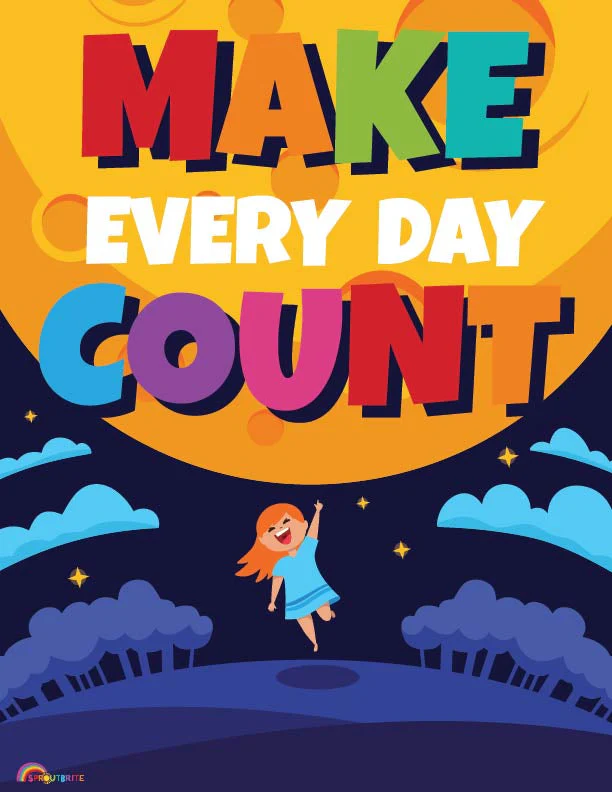Financial stability, as intriguing and difficult as it may sound, only involves ‘keeping your extravagant habits in check’.
You do not need a life-changing miracle to get that financial peace that you want. You just need financial management 101.

There is a savage piece of advice from Warren Buffet, a top investor of the 20th century and a successful businessman.
He says, “If you buy things you do not need, soon you will have to sell things you need.” (1)
So, in case you are wondering, “I don’t buy anything unnecessary,” Let’s look at the list that will not just help you cut expenses but also make you aware of your thriftless habits through the simple art of financial management.
12 Ways To Successful Financial Management
1- Say NO to your comfort shopping.
(I can see you skipping lady!)
Your device is not simply a machine.
Artificial Technology (AI) has given them a brain of their own. So it’s neither a coincidence nor fate that something you have been craving just pops up on your screen. It is strategic marketing that you have fallen prey to.
Don’t get me wrong, but shopping for the first thing that pops up on your screen 10 times a month is not the solution to your problems.
That is bad financial management right there. The same strategy of saying NO also applies here. Let me help you with a few tips here:
- Mute the notifications of that lifestyle influencer who gets paid to promote a product by calling them tried and tested.
- Practice daily affirmations like, “I do not need Lululemon to look good.”
- Take off your credit card details from the saved list of your device.
- If you run out of self-control, buy one essential item and tell yourself you are a loser.
Putting your foot down is necessary if you want to save up. Following one month of this challenge in financial management can show you the amount of money you waste on things you could go without, is crazy! (2)
2- Cancel all unused subscriptions
Did you know that you, as a part of the consumer community, are responsible for generating revenue of £688 million on unused subscriptions in 2023?
This is not financial management but it is called trashing money.
This study involved the data of 13 Male UK adults, of which 40% had accidental subscriptions by autorenewal, 39% forgot to cancel the subscription after the free trial, and 24% subscribed accidentally thinking they were making a onetime purchase. (3)
Having a subscription amnesia? Follow this strategy from now on to keep track of your subscriptions and stay on top of your financial management rules:
- Create Excel sheets. It’s old-school but the most effective method out there.
- Set up reminders on your phone every last week of the month to check your emails for any accidental subscriptions.
- There are companies now, like RocketMoney, that help instantly navigate all your subscriptions and cancel them for you. (4)
So, if you want to save $100-$300 a month, get yourself some help.
Call a company. It can save you both, time and money, except for the part where you pay the company. Financial management needs intelligence on the consumer’s part.
3- Strategic shopping
No matter how much we plan our monthly grocery list or other utilities, it always exceeds the budget or hardly ever meets it.
It’s because most of us suffer from extravagant shopping habits instead of strategic. (2) Financial management is the key to avoid overspending.
Making a grocery list does not qualify as a strategic shopping method. Where you shop is what matters.
So conduct your market research. Don’t just go to Target every time because you love the ‘aesthetic’, and I say it sarcastically. Here is what you can do:
- Compare prices of different stores online.
- Decide what you want to buy, where you want to buy, and which brand you want to buy, before leaving your home.
- Calculate the budget before leaving and only carry a couple hundred bucks extra.
- Instead of cluttering your wallet with coupons and throwing them unused or expired, save them
- The most important tip is to never shop hungry.
Choose local vegetable markets and generic grocery brands that are economical and light in your pocket.
You can save a significant amount compared to malls and big retail chains, in my experience half of the monthly grocery expense, and thank me later for successful financial management!
4- Avoid unnecessary dine-outs and takeaways
The easiest way to generate immediate margin in your budget and a lot of savings is to stop eating out for a month.
This is financial management 101. These fast-food chains, like KFC and Mcdonald’s, are not just stripping you of the health benefits but also ripping you off for their unethical agendas if you know what I mean. (5)
You don’t need to stop dine-outs and takeaways forever.
Control your urges for one month and you will see how much it eases your financial burden. It’s challenging to control the craving, so here are a few fun games to help you and your family (or maybe manipulate them):
- Place a penalty piggybank and whoever breaks the one-month challenge gets to put half of the meal money in the piggybank.
- Challenge each other or place different bets, like washing the kitchen shelves for a month, or mowing the lawn for two.
- The best way would be to set up personal boundaries. Think about treating yourself with the money you save.
- Make fast food at home by spending a little on ingredients than spending triple outside.
Remember! The key is to say NO to yourself every time the idea of eating out pops up in your brain.
A little discipline goes a long way to keep your budget in check.
5- Use legs for short-distance, public transport for long
Not all errands require a car. Think strategically about your daily needs and consider alternative modes of transportation for successful financial management.
Every trip you ditch the car for translates directly into savings at the pump, boosting your financial well-being. Here’s how:
- Embrace the power of your own two feet! Walking or cycling for short distances is not only good for your health, but eliminates gas costs and parking tickets. Plus, you get a daily dose of fresh air and exercise.
- Public transport offers a cost-effective alternative for longer commutes. Buses, trains, and subways typically have lower fares compared to car ownership, factoring in gas, maintenance, and insurance. Plus, you can catch up on reading, work, or simply relax during your commute.
Still, feeling the pinch of using personal transport? Consider this: your body and public transport hold the key to huge monthly savings and financial management. (5)
6- Pay off all the debts
Debt payments can strangle your budget and make your financial management plan falter. Prioritize paying off high-interest debts like credit cards first.
Consider a debt consolidation loan to secure a lower interest rate, simplifying your repayments and potentially saving you money. Here’s a step-wise guide to help you:
- Focus on high-interest debts (credit cards) first.
- Consider a debt consolidation loan for a lower interest rate.
- Set up automatic minimum payments to avoid late fees.
Remember, every dollar saved on interest goes straight to your financial well-being and successful financial management. (5)
7- Provide rental services
Rising inflation can make you feel squeezed. Renting out underutilized items you own can be a game-changer for your budget.
Instead of getting possessive over your belongings, transform them into a steady stream of income, helping you chip away at those pesky monthly expenses. (5)
Here’s how the rental service can benefit you:
- Renting out a spare room, parking space, car, or even that fancy power tool you rarely use brings in additional income.
- Let’s be honest, not everything we own sparks joy (thanks Marie Kondo!). Renting allows you to declutter while still getting some value out of rarely used items. It can be that formal dress you wore once. Someone might rent it for a special occasion, and you get a cut!
- Rental platforms often foster a sense of community. You connect with people in your area who need what you have, building trust and potentially sparking new friendships.
You can use platforms like OLX, Uber, Airbnb, Kyte, etc., to unleash your inner entrepreneur and put your underutilized belongings to work.
With a little effort and the right platform, you can turn your stuff into savings, one rental at a time, and lead the way to financial management success!

8- Create a budget
A budget acts as your GPS, guiding you toward financial management control. It’s a simple yet powerful tool that tracks your income and expenses, revealing where your money goes.
Once you pinpoint areas of unnecessary spending–that daily coffee, the unused gym membership–you can make informed choices to cut back.
Every dollar saved adds up quickly. Here are some ways you can create a trackable budget for successful financial management:
- Record all income sources (salary, side hustles) and categorize every expense (rent, groceries, entertainment). Consider a free budgeting app like Mint or You Need a Budget (YNAB) to automate this process.
- Choose a budgeting method that resonates with you. Popular options include the 50/30/20 rule (50% needs, 30% wants, 20% savings/debt) or zero-based budgeting (allocating every dollar). Research and select the approach that best aligns with your financial goals.
- Don’t aim to slash spending overnight. Start with small, attainable targets that gradually build momentum.
- Schedule regular check-ins (weekly, monthly) to assess progress and adapt to changing income or expenses. Be flexible and adjust categories as needed.
- Utilize budgeting apps to streamline tracking, set automated reminders for bill payments, and categorize transactions effortlessly. Many offer financial insights and goal-setting features to keep you on track.
Consistency is key – the more you use your budget, the more control you gain over your finances. Let a budget be your roadmap to financial freedom. (6)
9- Update insurance plans
Don’t settle for overpaying on insurance! Just like your denim, shop strategically and carefully, looking into all options available.
A strategic approach to financial management in this avenue can significantly reduce your premiums across various policies. Here are the steps to becoming a strategic insurance shopper:
- Many insurers offer substantial discounts – think 20-30% – when you combine your car and home insurance under one roof. This convenience benefits both parties – the company retains your business, and you save money.
- Raising your deductible (the initial amount you pay before insurance kicks in) lowers your monthly premiums. However, ensure you have enough savings to comfortably cover a higher deductible in case of a claim.
- Reassessing your needs changes life! Regularly review your coverage to ensure it aligns with your current needs. For instance, young adults with good health might benefit from high-deductible health plans. Term life insurance, expiring after a set period, can be cheaper than whole-life policies if you aim for coverage until retirement.
- Don’t be loyal by default! Utilize online quote comparison tools to get a clear picture of available rates from various insurers. This empowers you to negotiate with your current provider or switch to a more competitive option.
This will help you transform yourself from an insurance overpayer into a cost-conscious consumer.
Remember, a little research can translate to significant savings on your insurance policies. (6)
10- Downsize apartment
Living in an apartment that’s bigger than your needs can drain your wallet.
Consider downsizing to a smaller, more manageable space for successful financial management. This could mean moving to a different neighborhood with lower rents or finding a roommate to share the costs.
Rightsize your apartment using the following strategies:
- Evaluate your space needs by asking questions like does your current space fit your lifestyle?
- Explore other affordable options by downsizing to a smaller apartment or finding roommates.
- Research friendlier, accommodating neighborhoods. Look for areas with lower rents or more affordable housing options.
Remember, a cozy and comfortable space doesn’t have to be extravagant. Sometimes financial management is more important than comfort. (5)
11- Keep a quality lifestyle, not materialistic
True happiness often comes from experiences, not material possessions. Instead of constantly buying new things, focus on creating memories through a uniform financial management plan.
Explore free or low-cost activities in your city – visit museums on free admission days, have picnics in the park, or organize game nights with friends.
- Explore parks, or join community events.
- Plan budget-friendly outings by organizing game nights at home, or go for scenic walks.
- Invest in experiences that bring you joy, not just material possessions.
It saves more than just money. It saves relations that are falling apart.
12- Automate savings and investments
The struggle to consistently transfer money to your savings account is real! But what if you could eliminate that mental hurdle?
Let’s introduce you to automated savings, your friend in successful financial management.
Financial experts widely recommend automating your savings for a simple reason: it takes willpower out of the equation. Here’s how it works:
- Most banks and financial institutions offer automated transfer options. Simply link your checking and savings accounts, and schedule recurring transfers. You can choose a specific date (e.g., payday) or frequency (weekly, bi-weekly, monthly).
- Automating savings ensures consistent contributions towards your financial goals. Whether it’s a vacation fund, emergency savings, or a down payment on a house, steady deposits add up over time. The power of compound interest further amplifies your efforts, making automated savings a powerful tool for long-term wealth creation.
- Don’t feel pressured to begin with a massive transfer. Start with a manageable amount that won’t strain your budget. As your income increases or your spending habits adjust, you can easily adjust the automated transfer amount to boost your savings.
A bonus tip would be to consider using a “rounding up” strategy. Some banks offer automatic features that round up your debit card purchases to the nearest dollar and transfer the difference to your savings account.
These small amounts can accumulate surprisingly quickly, adding an extra layer of savings to your automated plan. (7)
Remember, automation is your friend in building a secure future in financial management.
If you are looking for more money-saving tips, keep reading to gain financial independence.
- 5 Research-Backed Ways To Stop Procrastinating And Get Productive
- 30 Best Side Hustles To Supercharge Your Savings Plan
- 21 Online Passive Income Ideas For Beginners





